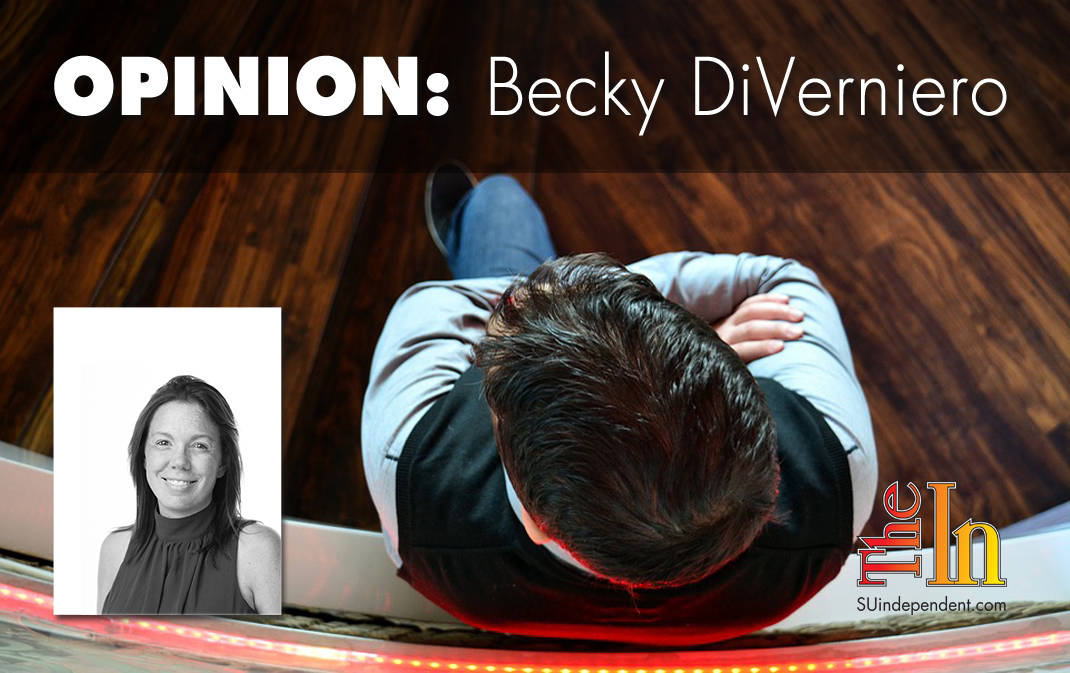 As this column is posted on The Independent’s website, the country will be two weeks into the 21st season of “The Bachelor,” starring two-time former contestant Nick Viall as he weeds through some of the “most eligible bachelorettes in the country” to find a spouse. Through first impressions, cocktail parties, and increasingly intimate dates, he will narrow down the herd until he is left with a final choice who he will propose to in the season finale. Frequently cited by the bachelor or bachelorette, the host, and contestants as the “best way to find love,” the show invites audiences to root on the bachelor or bachelorette in their journey to find a soul mate.
As this column is posted on The Independent’s website, the country will be two weeks into the 21st season of “The Bachelor,” starring two-time former contestant Nick Viall as he weeds through some of the “most eligible bachelorettes in the country” to find a spouse. Through first impressions, cocktail parties, and increasingly intimate dates, he will narrow down the herd until he is left with a final choice who he will propose to in the season finale. Frequently cited by the bachelor or bachelorette, the host, and contestants as the “best way to find love,” the show invites audiences to root on the bachelor or bachelorette in their journey to find a soul mate.
I started watching this show about seven years ago because my students liked it, and I thought it might hold some good options for clips to integrate into my courses. However, a few episodes in, I was simultaneously bored by the tedious rigid episode formula and horrified at the relational messages the show seemed to send and viewers appeared to eat up and apply to their own lives.
What this show’s rules and process create is essentially an uneven relational power structure in which each season’s star is touted as an ideal romantic partner, implicitly (and, sometimes, explicitly) pressuring contestants to constantly accommodate to their needs, with anyone who threatens this image by questioning the show’s formula quickly derogated as “not there for the right reasons.” The result after 14 years of the same presentation of what “romance” involves is a set of standards for courtship and marriage, not just for those involved in the show but for millions of fans every year. The same holds true of “The Bachelorette,” which creates the same pressures toward the male contestants to conform and accommodate the female star, putting aside their own needs.
Although only five couples (17 percent over 30 seasons) have actually married, the show has effectively persuaded audiences, contestants, and the bachelors and bachelorettes alike that the end (monogamous marriage) justifies the means of getting there in spite of the severely uneven power hierarchy inherent in the structure. In particular, the production team has been able to normalize the idea that because the bachelor or bachelorette is looking for his or her future spouse, he or she must be respected and accommodated to, yet contestants must surrender the majority of their autonomy if they want to be considered invested in the relationship. While participants are allowed to refuse a rose, the symbol that the bachelor or bachelorette is still interested, and can leave of their own volition, their decision-making power ends there. The bachelor or bachelorette is expected to explore relationships with everyone, yet the contestants themselves must lie in wait for their turn to make a case for why they are marriage material. Any participant who attempts to engage in more than one relationship or questions the show’s formula is quickly labeled a villain and cast aside as “not there for the right reasons,” shamed both by those on the show and for years after by the angry audience. A clear example comes in season 14 when bachelor Jake Pavelka describes discovering that one of the contestants, Rozlyn Papa, had developed a romantic relationship with one of the show’s producers during the taping of his season, which he discussed during an interview with “Entertainment Tonight”:
“How upsetting is that, because here’s this woman that’s coming here saying I want to be with you, and all of the sudden you find out, you DON’T want to be with me. I’ve never been cheated on. I got cheated on … You know in the moment I was disappointed and just hurt. But you know I’ve got 14 other girls that are amazing and beautiful and so I recomposed myself, got over it.”
In spite of Jake’s admission that he had 14 women left to date, he shares his disappointment in getting “cheated on,” marginalizing anyone who has a problem waiting around all day hoping to even get a glimpse of him. Both Rozalyn and the crew member in question were told to leave the show, yet Jake’s dating of over 10 women was touted as typical given his honorable intentions.
Although research has shown that audiences recognize the fantastic, unrealistic dating scenarios on “The Bachelor” and “The Bachelorette,” there is evidence to suggest that all forms of media, and reality television in particular, impact our sense of self and how we understand the world around us. Even though we know these shows are produced, those involved are still presented as “regular” people, their actions potentially providing a social script for how we should communicate in “real life.”
The takeaway message from shows like “The Bachelor” and “The Bachelorette” is that our culture supports the idea of both love and romantic partners as commodities to be won. Instead of relationships being a negotiation between consenting adults, we must determine quickly and in isolation, based on surface level information, who is an appropriate future spouse and cast aside anyone who shows signs of even the smallest flaws. It is only after we have thinned the herd and gotten into a serious relationship that we can consider the other person’s thoughts, feelings, or beliefs as important as our own. These images, in conjunction with similar reality dating shows and romantic media, work together to define relationship reality for us and limit our personal choices when we seek out mates in “real life.”
Articles related to “Problematic relational messages in ‘The Bachelor'”
Eight ways to fortify marital bonds and rekindle your marriage





